![]()
The Charlotte News
Monday, April 11, 1949
THREE EDITORIALS
![]()
![]()
Site Ed. Note: The front page reports that in China, a handful of Communist troops had crossed from the Yangtze's north bank to an island near the south bank, the second such operation during the previous 24 hours. Reports indicated that Nationalist troops rushed onto the island to combat the Communists. The first such movement, involving ten small sailboats, was reported rebuffed by Government artillery fire. Previous reports said that the Communists had postponed their threatened invasion of Southern China until the following Friday to provide more time for compliance with the ultimatum of surrender.
Italian Foreign Minister Carlo Sforza asked the U.N. General Assembly's political committee to give Italy back its prewar African colonies and assured that they would be prepared for independence at the earliest possible time.
In Nuremberg, Germany, Baron Ernst von Weizsaecker, a German diplomat, was convicted of plotting the war and helping the massacre of Jews. Seven other diplomats and high Nazi officials were also convicted. It marked the first time that an all-American tribunal had convicted defendants on a charge of planning the war, of which five of the defendants were found guilty. Four were found guilty of murdering Allied war prisoners and two of mass atrocities against civilians. Some were acquitted on several counts. The tribunal had not yet rendered verdicts for thirteen others on trial. The court conceded that Herr Von Weizsaecker, as he contended, had secretly worked against Hitler and advised against most of his aggressive moves, and accordingly he was cleared of complicity in all of the aggression except against Czechoslovakia. Herr Von Weizsaecker's son, Richard, who as a law student assisted in his father's defense, would become President of the Federal Republic of Germany from 1984 to 1994.
The House Appropriations Committee approved a 7.58 billion dollar multi-agency funding bill, which included a cut of a half billion dollars from the Veterans Administration, and total cuts of 734 million for the 28 independent agencies covered. It refused to follow the President's recommendation for cancellation of 237 million dollars worth of veterans hospital construction. Even with the cuts, the V.A. would receive 15 million dollars more than in the previous fiscal year but would have about 800 million less to spend because some of the new funds would be applied to the remaining months of the current year.
Representative John Taber of New York and other fiscal conservatives on the Appropriations Committee spoke during House debate against both providing any more ERP aid for the current fiscal year and appropriating as much as four billion dollars for the next fiscal year. There was an amendment pending to cut funding by ten percent, but House leaders believed the votes were present to defeat it.
Former President Hoover outlined to the Senate Armed Services Committee a plan to reduce waste and inefficiency in military spending by appointment of three new assistant secretaries of Defense as well as recommending other measures aimed at increased efficiency. A report of the Hoover Commission studying Government reorganization had revealed, for instance, a 30 million dollar clerical error in the requested National Guard budget when howitzers actually costing nine million dollars were listed as costing 39 million. The Army's 1950 budget had included an item for over 108 million dollars to purchase tropical worsted uniforms at $129 apiece for more men than all of those enlisted in the Army.
In San Marino, Calif., the
three-year old girl
A piece finds the tragedy remindful of the death of Floyd Collins, trapped for two weeks at the bottom of a 70-foot shaft on January 30, 1925 while exploring a cavern near Mammoth Cave in Kentucky. A rock slide ultimately barred rescue efforts after food had reached him initially. His body was recovered nearly three months later.
In Washington, a strike of 200 mechanical workers again halted publication of newspapers. A pressmen's union walkout had halted publication the previous Wednesday, and the present strike was a continuation of that unresolved dispute. The previous Wednesday and this day marked the first time in 70 years that the newspapers in the nation's capital failed to be published.
In London, some 6,200 dock workers struck, holding up the unloading of 46 ships, some containing meat and other rationed foods in Britain.
The London Daily Herald
reported that Londoners would soon get a taste of hominy grits
Hogwash. The only thing for which grits are used are grits at breakfast, and only if you happen to be unfortunate enough to find them on the menu without a substitute. On that one, we are with Virginius Dabney, as reported in 1957 in the column referenced Saturday of John Temple Graves II. If you have never had them, you are not missing anything. If you put butter and salt on them, then they taste as salty, buttery grits. Otherwise, they are akin to eating gritty paste.
Parenthetically, you might not ask, how do we suddenly come across these wild connections from time to time? We have no idea. It just happens. But we assure that we do not read ahead, unless it is by mistake, as on the previous Thursday, reading ahead Saturday's editorial page.
In any event, Atlanta
Constitution Editor Ralph McGill sent along some grits recipes
for Europe. He liked them baked in milk and eggs as a casserole
On the editorial page, "The People's Dilemma" comments on a piece on the page from the Louisville Courier-Journal, which examined the refusal of Georgia voters to approve a 46-million dollar program for new services. The Courier-Journal piece suggested that the entire tax structure and the increase in services themselves ought first be re-examined. The Atlanta Journal had editorialized that the voters appeared to resent the Legislature having passed the buck to them to approve the increased services without first determining how the services would be paid.
The editorial finds that the same analysis might be applied to the current General Assembly session assessing Governor Kerr Scott's "Go Forward" program, with regard to both the 200-million dollar rural roads program and the 50-million dollar school building program. The Assembly had created confusion in both programs as to how they would be financed, each house adopting different formulas. It concludes that if the people finally rejected the bond measures for these programs, it would be from that confusion.
"City ABC Store Elections" discusses a pending bill in the State House to determine whether the State should break down the county option system into smaller units, towns and cities. Some city elections had already been allowed, but one for Greensboro had just been turned down.
The editorial supports local option rather than a statewide referendum, already killed by the Assembly, but does not see any rational basis for reducing the county-wide option further to embrace only towns or cities.
"Bolstering the Pact" finds that the Western democracies now had to be armed to give teeth to NATO. The U.S. was now implicitly responsible for all of the Western European signatory nations, as there was a "moral commitment" to come to the defense of any attacked member, the decision of what, if any, force to use in the matter being left to each nation. If the pact was to have any effect, the nations had to be armed. But some argued that the China result could ensue, whereby arms would ultimately wind up in Communist hands should there be Soviet aggression in Western Europe. They also argued that further re-arming of Western Europe could not be accomplished fast enough to deter Russia from attack in any event.
The piece suggests, however, that these were risks which the U.S. had to take, for to fail to arm the nations was to do irreparable harm to relations with them. The Communists, moreover, would argue that the U.S. had failed to live up to its commitment. And that propaganda could turn Western Europe against the U.S., perhaps motivate the Western Europeans to turn to Communism.
It boils the choice therefore down to failure to arm and thereby saving the potential loss of those arms while keeping the defense budget two billion dollars lower, or arming and risking loss of those arms while maintaining the trust of the other signatory nations to NATO, convincing them that they were not being set up as simply a buffer zone to the Soviets and their satellites.
A piece from the Louisville Courier-Journal, as stated in the above editorial, tells of the voters of Georgia turning down a 46 million dollar program of added services for better schools, roads, State hospitals and extended welfare benefits. Governor Fuller Warren of Florida had asked the Legislature to approve 50 million dollars in increased taxes for a similar program.
While the better services were necessary, there was concern that in an economic downturn, the revenues from state income taxes might dry up, leaving a sales tax to pick up the slack, as the referendum in Georgia did not specify the means for financing the program, leaving it to the Legislature to determine. The Florida proposal was more direct, seeking higher income taxes.
It opines that people did not mind being asked to pay more for needed services but that if asked to approve more services, they ought also be asked to approve the method of payment for them.
Drew Pearson tells of Senator Harley Kilgore of West Virginia having introduced a resolution to investigate the lobbyists in Washington and it having been held up in the Judiciary Committee by a one-man filibuster by Senator Alexander Wiley of Wisconsin. Meanwhile, the new Congress was nearly as subject to the lobbyists as the previous one. Lobbies were now working in disguise. The American Enterprise Association was sending digests of bills every morning to Congressmen, with the lobby preparing and slanting those digests to the point of view of its own interests, representing some of the nation's largest manufacturers, most of them in turn supporting the National Association of Manufacturers and the Foundation for Economic Education. Many Congressmen were unaware of this fact and relied on the digests. The AEA claimed to be impartial. Mr. Pearson lists the lobby's officers and trustees. Its guiding genius was Guy Wyatt and its Washington representative was Malcolm Hardgrove, not registered as a lobbyist though he admitted to Mr. Pearson visiting 20 to 50 members of Congress each day.
Mr. Hardgrove not only furnished analyses of pending legislation to Congressmen, primarily Republicans, but wrote canned speeches for them and furnished them various material. He also had secret ties to the real estate lobby. In addition to Republicans, he wooed as well some Democrats. Mr. Pearson promises more in a future column about the links of the AEA to Democratic members.
Joseph Alsop tells of an informal extant agreement between Britain and France that in the event of an attack by the Soviet Union on the Western powers, an American general would be named to head the Supreme Military Command. The agreement was a condition for France's acceptance of Field Marshal Bernard Montgomery to head the Command for the nonce. The French, in the event of attack by Russia, favored the neutrality of a U.S. commander. The fact also suggested the great responsibility to be assumed by the U.S. under NATO.
There was a move afoot to have General Omar Bradley assigned to make the NATO agreement work, a job more difficult than most people were assuming for the need to integrate the defenses of the Western powers, including production of arms and organization of lend-lease by the U.S. Primarily, the French and Belgians wanted this command structure, the British desiring it a little less. And many American officials were hesitant publicly to acknowledge the national role which would come from such an assignment. Mr. Alsop concludes that perhaps it might come to nothing.
Marquis Childs tells of the Alger Hiss trial likely to be continued until early May. The case had disappeared from the headlines since its inception with the indictment of Mr. Hiss in December.
Mr. Childs had written several weeks earlier that it appeared to him that Whittaker Chambers, the chief accuser of Mr. Hiss as a Communist conveying secret Government documents for transmission to the Soviets, had in his testimony appeared to relate of "the tragedy of a lost intellectual amid his fumbling, conspiratorial relationships with other lost intellectuals." His readers then accused him of defending confessed Communists while the friends of Mr. Hiss said that he had prejudged the matter.
Everyone, he reminds, was entitled to the presumption of innocence and a fair trial. The trial in New York of the eleven top American Communists for violation of the Smith Act, he posits, would ultimately reach the Supreme Court if they were convicted. And if the Communist Party was found finally to be involved in a criminal conspiracy with Moscow to overthrow the Government, then it would pose a difficulty for the Justice Department, as both Attorney General Tom Clark and FBI Director J. Edgar Hoover disfavored outlawing the Communist Party. The alternative would be a requirement, as per the Mundt-Nixon bill, to require registration of Communists, perhaps with criminal penalties for violation.
Mr. Hiss would have able legal representation in Lloyd Paul Stryker of New York, as his friends from Harvard Law School had formed a defense fund on his behalf.
Mr. Childs concludes that while the enemy without was known, the enemy within, those who hysterically called for jailing of all Communists, was an even worse threat to security. For those persons actually intended to include in their accused coven anyone who disagreed with their viewpoint and could be conveniently labeled a fellow traveler. "It is they who threaten the free institutions that are our heritage."
A letter from the chairman of the Mecklenburg County Chapter of the American Red Cross thanks the newspaper for publicity for its campaign, even though it had fallen short of its goal, having raised $106,000.
![]()
We'll perhaps see you next year, Wildcats, and find some wet spots of our own to enable reading of defenses on the last play and permit time to adjust to them after exhausting the allotment of timeouts.
Maybe, in the final analysis, it was the spirit of Davy Crockett somehow again getting his revenge against Santa Anna in Houston by fixing the crack in the Liberty Bell. But UNC has a Bell also.
Beware the Ides of March next.

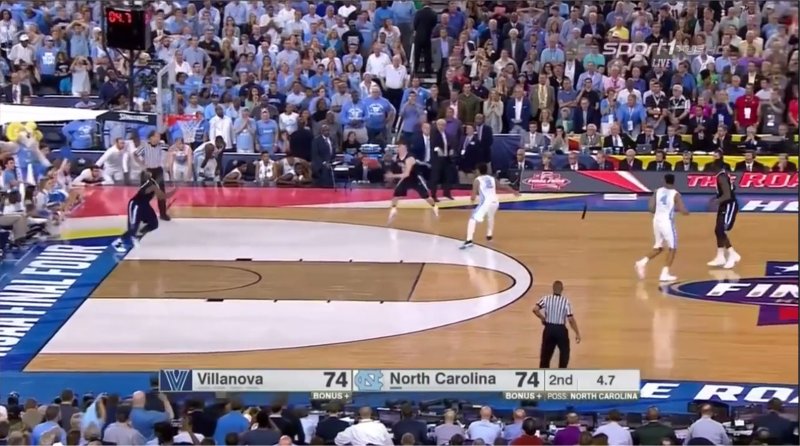
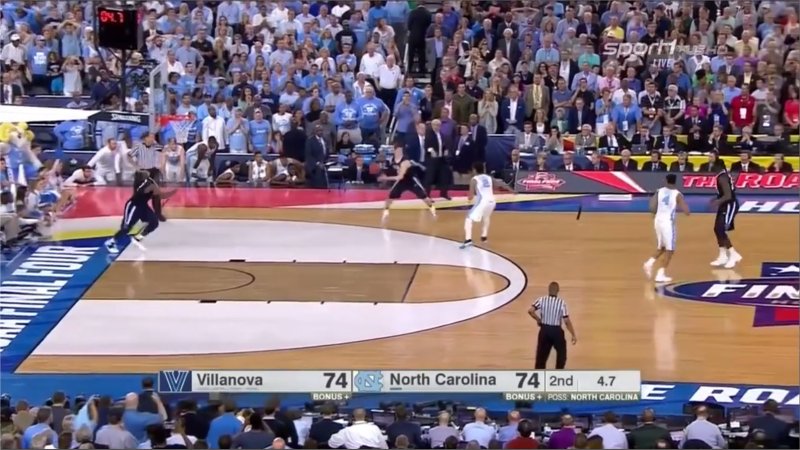
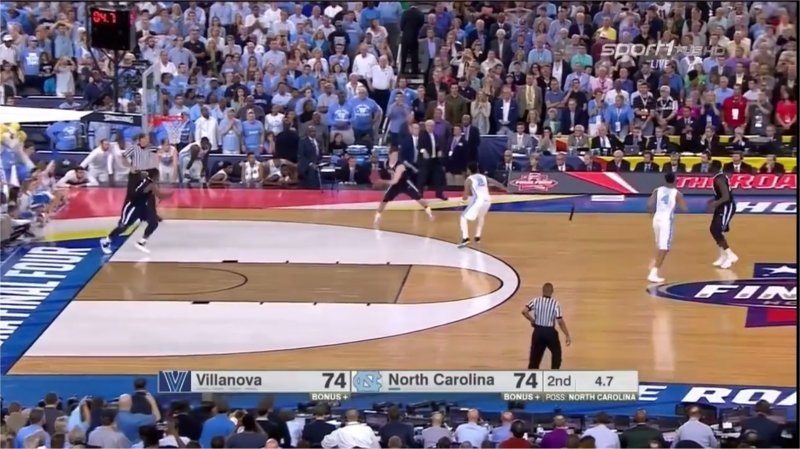
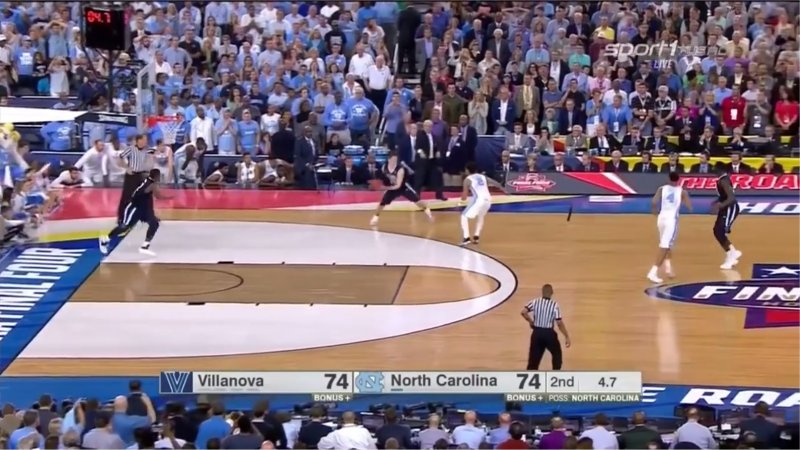
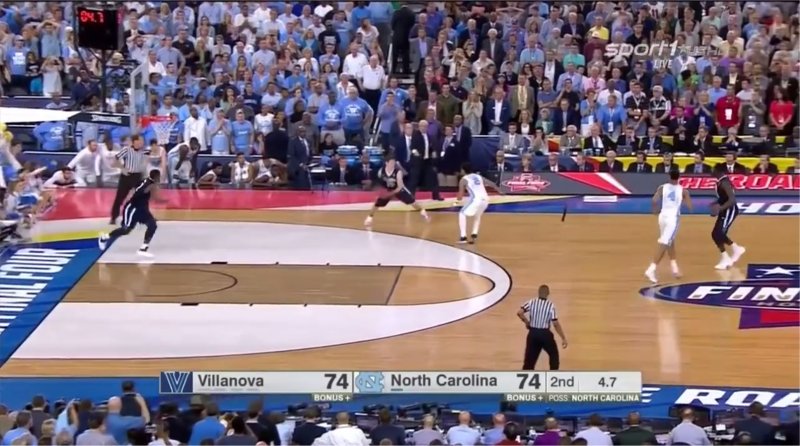
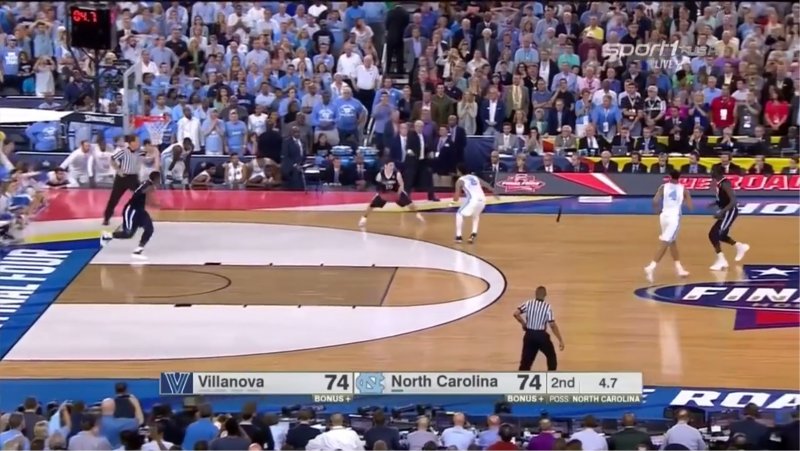
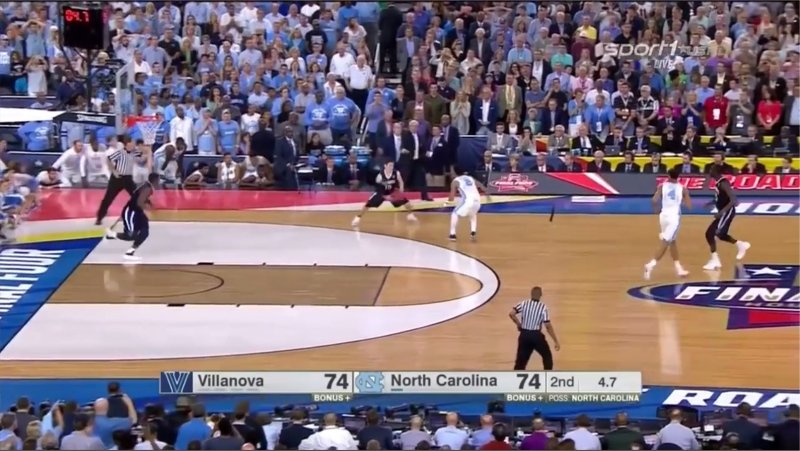
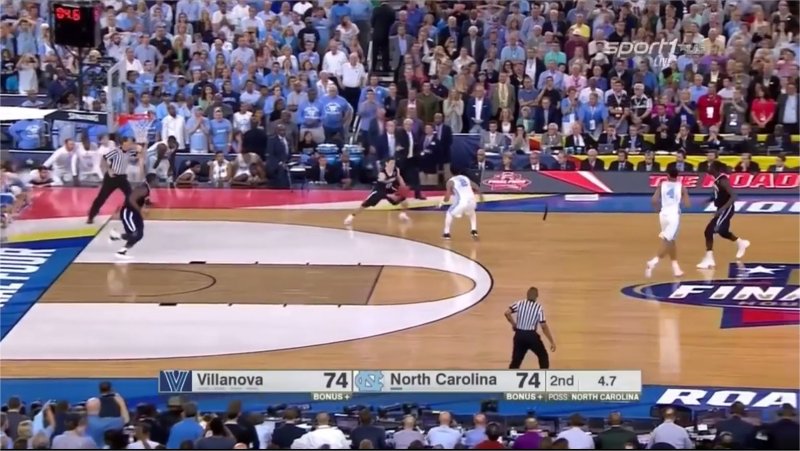
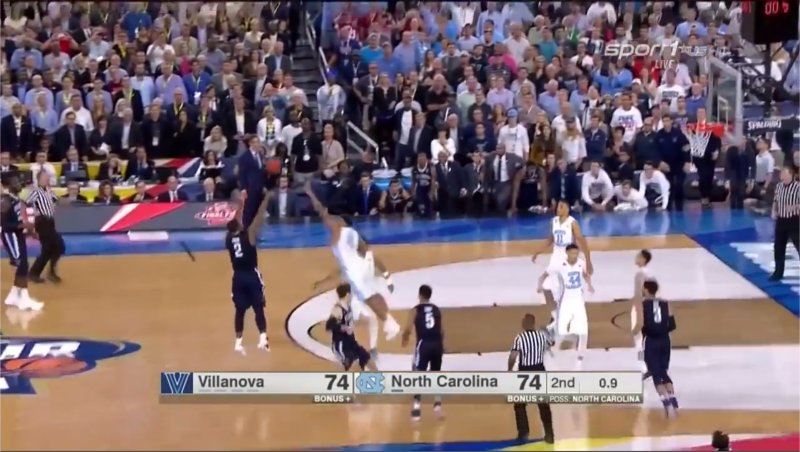
![]()
![]()
![]()